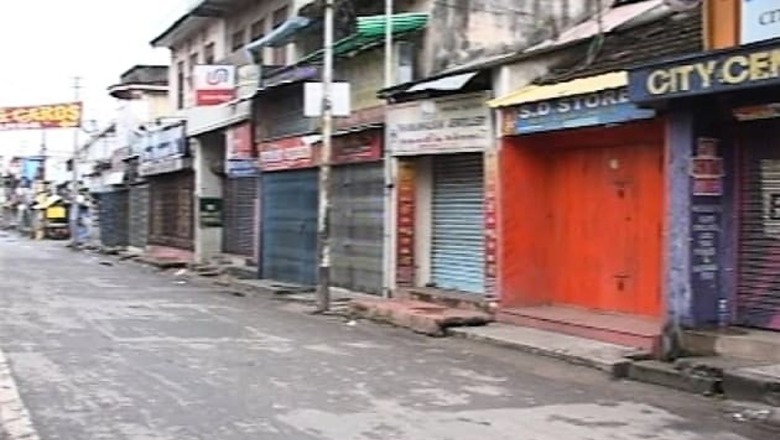
views
Kolkata: Industry body Assocham on Wednesday expressed the fears that the loss to GDP due to the strike by central trade unions could be about Rs 26,000 crore, higher than its initial estimate of Rs 15,000-20,000 crore.
Against initial estimates of Rs 15,000-20,000 crore, the GDP may be eroded by about Rs 26,000 crore," the Assocham said in a release in Kolkata.
"In the wake of more than expected disruption, we estimate the loss to the GDP in today and tomorrow's Bandh to be in the region of Rs 25,000-Rs 26,000 crore - near 50 per cent of the economic activity," said Assocham Economic analysts team.
Stating that the financial capital of Mumbai was hit badly, it said the apprehension was based on the damaging effect of the strike on industrial activity and the service sector like banking and finance.
Assocham said in most industrial states and enclaves attendance was poor, leading to curtailing of productions shifts. With city transport being affected adversely, the footfalls in retail trading markets also considerably declined, even though some of them remained opened.
Expressing concern over incidents of violence and torching of public and private property, the chamber appealed to union leaders to prevail upon their rank and file and ensure that ugly incidents did not take place.
"Such incidents completely shake confidence of the industry and the market for which security and peace is of paramount importance."
Besides, retail customers chose to stay indoors leading to considerable fall in the trading business, the lifeline of the country's economy, chamber President Rajkumar Dhoot said.
"The economy, at this point of time is battling local and global slowdown, cannot afford disruption. The strike would dent the market confidence as well," he said.
Assocham reports from different parts of the country suggested that the banking sector was the worst hit followed by local transport. The small and big retail trade recorded less footfalls.
The situation in the vegetable mandis will be worse tomorrow and it is feared that the prices of fresh eatable items like vegetables, milk, bread, eggs and meat may increase hitting the common-man who is already reeling under inflation.
The Assocham had earlier estimated the national loss figures based on the daily erosion of about 30-40 per cent to the country's Gross Domestic Production (GDP) for two days. It expressed fear that the disruption may go up to 50 per cent.




















Comments
0 comment